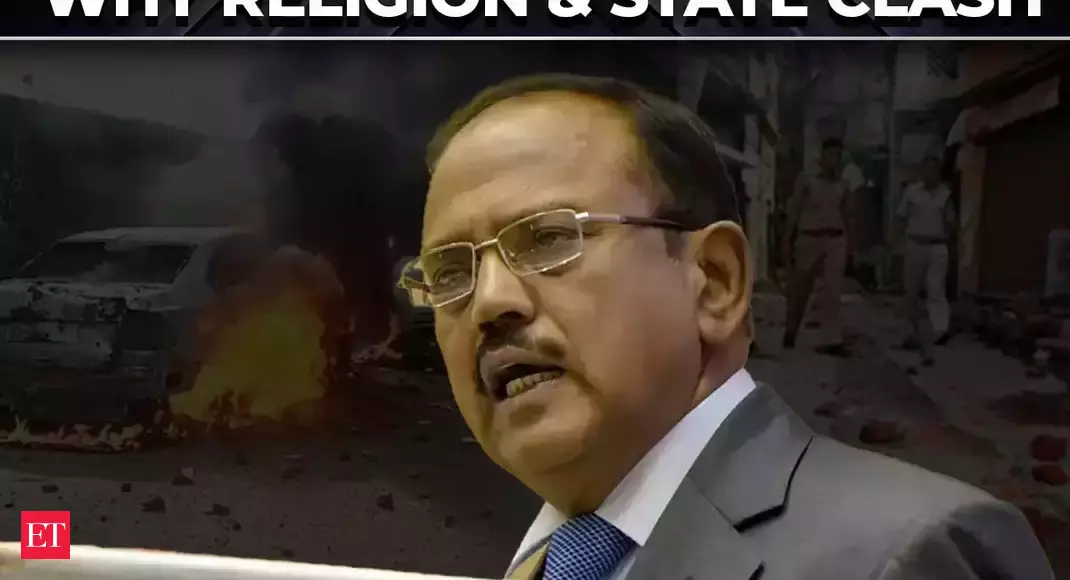Religion vs. State: NSA Ajit Doval Unveils the Hidden Tensions Dividing Societies

In a thought-provoking discourse during a recent book launch event, National Security Advisor Ajit Doval delved deep into the complex dynamics of religion and state interactions, shedding light on the intricate tensions that often emerge when spiritual beliefs intersect with political structures.
Doval's insightful analysis explored the fundamental reasons behind religious conflicts that can fracture societal harmony. He articulated how divergent religious perspectives and interpretations can create fault lines within communities, leading to potential confrontations and social discord.
Drawing from his extensive experience in national security and strategic affairs, the advisor emphasized that religious differences are not merely theological disputes but can become potent sources of social and political friction. He highlighted how deeply ingrained religious identities can challenge state mechanisms and create challenges for maintaining social cohesion.
The nuanced presentation underscored the delicate balance required between respecting religious diversity and maintaining a unified national framework. Doval's remarks provided a compelling perspective on understanding the underlying mechanisms that can transform religious differences into potential sources of conflict.
By offering a comprehensive examination of these complex dynamics, the National Security Advisor provided valuable insights into the intricate relationship between religious beliefs and state structures, inviting deeper reflection on how societies can navigate these challenging terrains.

